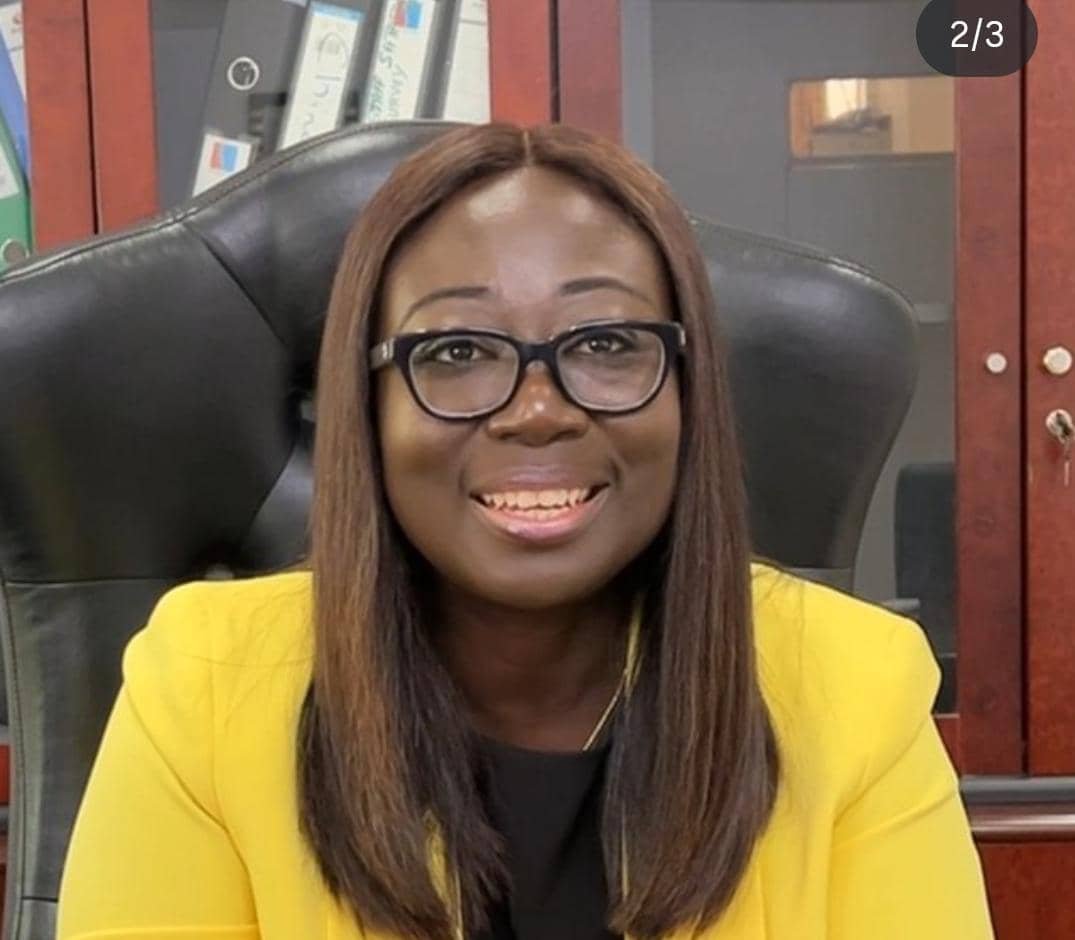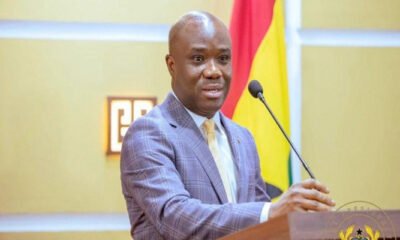Gender
Value of African beads and its importance in the Ghanaian society

Have you ever thought of the beauty of African beads and how it heightens the beauty of the body when worn? Or has it ever occurred to you why a king sits majestically in his palanquin with different types of beads around his neck, hands and legs during festivals and durbars?
How about the numerous beauty pageants which aim at projecting the African value through the contestants?
Well, the answer is so simple, these demonstrate the creativity, cultural heritage and the taste we have for our own products.
Typically, in Africa, and to be precise, Ghana, the history of Ghanaian beads dates back to ancient times when they were first used as the king’s currency for the exchange of slaves, textiles and alcohol.
Later on, they became popular in ancient times for the rituals of girls. Today, they are as valuable as foreign exchange earners, and serve as tourist attractions. The modern-day woman, both African and non-African, is rediscovering the beauty of these Ghanaian beads which have become popular today.
Colours and meaning
Speaking to Miss Elizabeth Acquah, a professional in the field of bead making, she explained that the colours of Ghanaian beads have meaning. She said, in certain parts of Ghana, white coloured beads evoke fertility; blue coloured ones are associated with purity; while golden beads are a symbol of wealth.
She further said, ‘Bodom’ beads are yellow with a diamond shape design of a darker colour such as blue and were traditionally produced to be worn exclusively by African chiefs. Once you know what the colours of your beads symbolise, wearing them becomes a personal experience.
But in today’s world, beads have become very fashionable and can be worn by anyone at any time to anywhere, depending on the function.
Today, the importance cannot be spelt out in our Ghanaian society as they play significant roles in projecting our cultural values.
Apart from it being worn on the waist, and worn by chiefs and royals, it can also be worn anytime to any occasion. It can go with nice African print dress or any other nice outfit to church, outdoorings, festivals, weddings and any event. Beads are also used in making foot wears, handbags, earrings and necklace.
Sexual Appeal
It is believed that a woman in waist beads is sexually appealing to men. Most African men love to see their women in beads. Most of them have also admitted that seeing a woman in waist beads turns them on. They love to play with it as their women lay in their arms or during sexual activities as well.
Some women also wear specific beads during sex to send a message to their partners. In the Ashanti and Krobo cultures of Ghana, large beads or bells are added to a woman’s waist beads once she is fertile so she makes noise when she walks to alert potential suitors and this serves as a symbol of femininity.
Body Shapers
Waist beads serve as a natural waist trainer for some women. Wearing of beads can easily tell an African woman whether she is gaining or losing weight. If you were to gain weight, the beads will sit higher on the waist or feel tighter, conversely, if you were to lose weight, the beads will feel loose and fall further down to the hips. Waist beads can be worn all day, every day.
Traditional Practices (Rites of Passage)
There is a belief that beads improve a woman’s curves. Hence, African baby girls are made to wear beads to enhance their curves and also to give them shape as they reach their adolescent stage.
Also, beads are used to mark family status, especially on special occasions such as rites of passage of girls to puberty called ‘dipo’ practised by the Krobos.
Beads can also convey identity and cultural significance. For instance, if a woman is married or a man is a warrior or an elder, the beads on them will indicate it. Large and colourful beads symbolise wealth and social status. Blue beads are thought to enhance fertility.
Healing and Meditation
Some people also believe that waist beads have some healing and protective charms that keep danger away. They are said to relieve people from stress, anxiety or relax the nerves during pregnancy.
Heritage and Pride
Beads are the fundamental part of the Ghanaian heritage. Not only do they testify of the vibrance of the Ghanaian creativity, they also play a significant role in the country’s history, rituals and culture. Sometimes, the waist beads are just a show of love for the Ghanaian and African heritage at large.
Maturity and Growth
For many communities, girls put on beads to signify their transition from adolescent into womanhood.
To conclude, beads play an important role in our Ghanaian society, so anytime you think of heightening your image in various ways, think about beads. And note that every African bead conveys pride, beauty, culture, power and identity.
By Jennifer Nyarko
Student, Ghana Institute of Journalism (GIJ)

Gender
Ending maternal mortality: A national, moral duty to mothers

When Ama Serwaa stepped out of her room that night, she paused at the doorway and looked back. Her two-year-old son was asleep, his tiny chest rising and falling gently. She bent, kissed his forehead and whispered, “Mummy will be back soon.”
It was a promise she never kept.
Ama was 28, seven months pregnant, and hopeful. She had been feeling unwell all day, but as many women do, she tried to endure it. When the bleeding started, fear crept in.
By the time her husband and neighbours realised it was serious, night had fallen and transport was hard to find. The nearest health facility was far away. Every minute felt like an hour.
By the time Ama arrived at the Ada district hospital, she was barely conscious. Within minutes, she was gone. Her unborn baby died with her.
In one night, a child lost his mother, a husband lost his wife, and a family lost its future. Ama became another silent statistics- another woman who left home pregnant and never returned alive.
Maternal mortality remains a challenge as far as reproductive healthcare services in Ghana are concerned.
The World Health Organisation (WHO) defines it as the death of a woman while pregnant or within 42 days of termination of pregnancy, regardless of the duration of the pregnancy, from any cause related to or aggravated by the pregnancy or its management but not from accidental or incidental causes.
This continues to be a great concern with majority of all maternal deaths occurring in developing Africa with more than half in Sub- Saharan Africa.
The Ghana Health Service (GHS) says, the country has recorded a slight increase in the institutional maternal mortality rate for 2024.
Data presented by the Director for Family Health, Dr Kennedy Brightson, at the Fifth National Maternal, Child Health, and Nutrition Conference in Accra shows a rise from 109.22 per 100,000 live births in 2023 to 110 per 100,000 live births in 2024.
Owing to the still high levels of maternal mortality in developing countries, especially Africa, it is now increasingly being recognised that actions required to achieve improvements in maternal health should involve comprehensive, multi-faceted approach.
Across Ghana, stories like Ama’s unfold quietly. There are no sirens, no headlines, no public mourning. Just hurried burials, unanswered questions and children growing up with fading memories of a mother’s voice.
It is this painful reality that formed the backdrop to a high-level Maternal Mortality Roundtable attended by the Minister for Gender, Children and Social Protection, Dr Agnes Naa Momo Lartey, as Ghana intensifies efforts to end preventable maternal deaths.
The roundtable, convened by the Office of the President through the SDGs Advisory Unit, in collaboration with the United Nations Population Fund (UNFPA) and the National Development Planning Commission (NDPC), was held under the theme: “No woman should lose her life to give a life.”
But for families like Ama’s, these words must mean more than fine speeches and conference banners. They must mean real change that reaches the last woman in the last village.
Speaking with emotion and urgency, Dr Lartey reminded participants that maternal mortality is not just a medical failure, but a failure of care, equity and accountability.
“Saving women’s lives must go beyond rhetoric,” she stressed. “It must be seen, felt and materialised in our communities, our clinics and our homes.”
She called for strong community accountability mechanisms, warning that when maternal deaths are normalised or hidden, society becomes complicit in the loss. Every woman who dies in childbirth, she noted, leaves behind a trail of grief that does not end at the grave.
“History will not judge us by the speeches we deliver today,” the Minister said quietly, “but by the lives we save through the path we take.”
She urged all stakeholders, government agencies, development partners, traditional and religious leaders to move beyond promises to clear commitments, timelines and responsibility, insisting that maternal health cannot remain an annual discussion while women continue to die daily.
Yet Dr Lartey was equally clear that the fight against maternal deaths also begins with women themselves. She urged pregnant women to take antenatal and postnatal care seriously, noting that many complications are preventable or manageable if detected early.
Health experts present acknowledged a painful truth: some women delay or skip antenatal visits because of distance, cost, fear or cultural beliefs. But these visits can be the thin line between life and death the place where danger signs are noticed before it is too late.
Dr Lartey reminded the nation that maternal health is not the burden of one ministry alone, but a shared moral responsibility — from policy makers to health workers, from chiefs to pastors, from husbands to neighbours.
“When women survive, children are born, families thrive, communities prosper and nations grow,” she said. “Saving women’s lives is not charity. It is justice.”
Today, Ama’s son calls his grandmother “Mama.” Her husband still keeps her cloth folded neatly in a box.
Her absence is felt in small, crushing ways an empty seat, an unanswered call, a child asking questions no one can answer.
Ama’s death should not be just another story told and forgotten. It should be a reminder and a warning.
If Ghana’s commitments remain words on paper, more women will leave home pregnant and never return. But if action replaces rhetoric, if women are supported to seek care, and if communities refuse to stay silent, then fewer families will have to whisper goodbye at a graveside.
By Esinam Jemima Kuatsinu
Gender
Expert urges regular antenatal attendance, adherence to medical advice

Dr. Akua Gyima Asante, the Medical Superintendent of the LEKMA Hospital, has urged pregnant women to attend regular antenatal clinics, adhere strictly to medical advice, and report early to health facilities when they notice any unusual signs.
She advised nursing mothers to practise exclusive breastfeeding, maintain good hygiene, and attend postnatal clinics to ensure the health and wellbeing of both mother and child.
Dr. Asante gave the advice after the LEKMA Hospital recorded nine successful deliveries on New Year’s Day, marking a positive start to the year.
She said the first delivery was recorded at 12:30 a.m., with five male babies and four female babies delivered during the day.
Six of the deliveries were normal, while three were conducted through caesarean section, Dr. Asante said, adding that the mothers and babies were in stable condition and responding well to medical care.
She commended the dedication and professionalism of the hospital’s healthcare staff for their role in ensuring safe deliveries and quality maternal care.
She reaffirmed LEKMA Hospital’s commitment to providing quality maternal and child healthcare services to residents of the Ledzokuku Krowor municipality and called for continued support to help the facility sustain its services. –GNA






